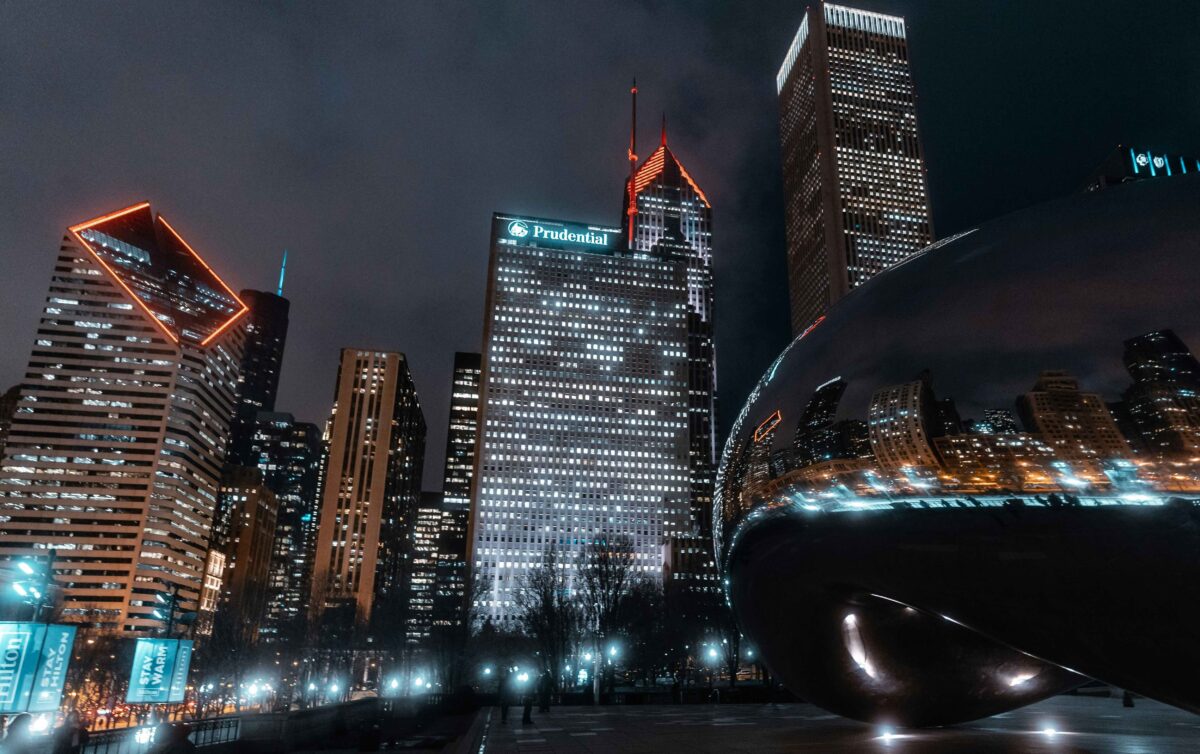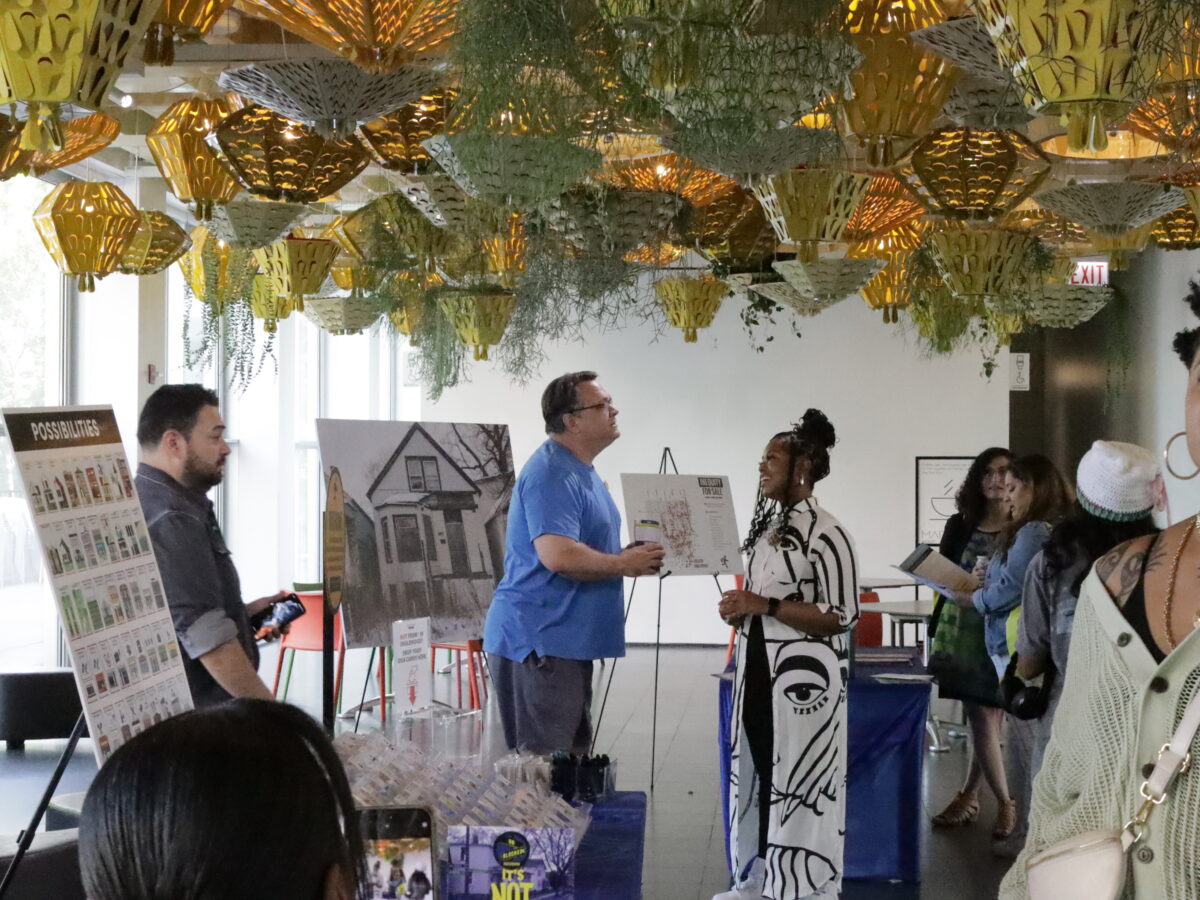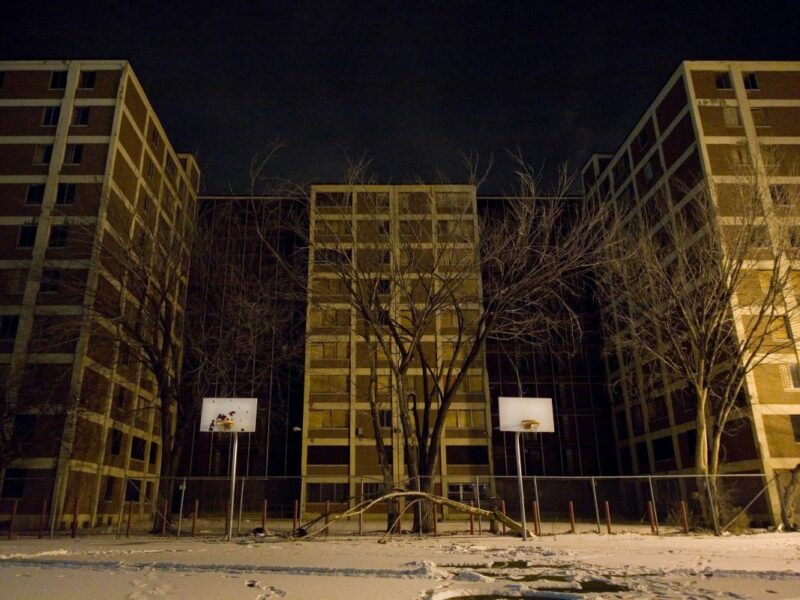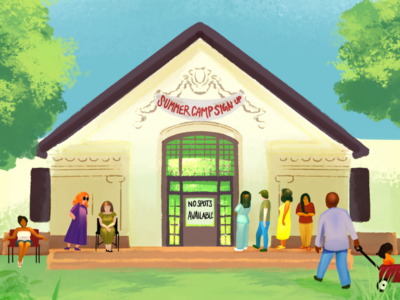Mayor Brandon Johnson and City Council members are closer to a compromise on curfews this week, after a downtown alderperson introduced a revised ordinance that would allow police to call snap curfews to address teen gatherings anywhere in the city.
Ald. Brian Hopkins (2nd Ward) had planned to seek a vote on an 8 p.m. downtown curfew after recent large gatherings of young people, known as “trends” or “teen takeovers,” turned violent. Johnson had opposed the curfew, but expressed openness to finding a compromise earlier this week. The citywide curfew is currently set at 10 p.m.
At Wednesday’s City Council meeting, Hopkins introduced a new ordinance that would give the CPD superintendent the power to declare a localized curfew whenever an on-site police commander believes that a “mass gathering” might occur. By the afternoon, Hopkins had garnered thirty-one signatures for his proposal, with most of the progressive caucus refraining. It could be up for a vote at next month’s council meeting.
The ordinance defines “mass gathering” as twenty or more people congregating in a public place “for the purposes of engaging in criminal or reckless conduct.” A police commander at the scene would announce the curfew thirty minutes before ordering minors to clear the area. Though officers would not issue citations or arrest minors who defy such orders, they could take them into custody until a parent or guardian picked them up. They could face fines of $500, and those costs could triple if someone violated the curfew three times in one year.
The proposal raised questions for 40th Ward Ald. Andre Vasquez, who wondered whether the ordinance could infringe on people’s First Amendment rights.
“How does one determine the difference between street takeovers, as we’re talking about it, and a protest?” Vasquez said. “I’m concerned, similarly with the last curfew legislation, that alders may be looking to pass something just to say they did a thing. There’s no enforcement, it may not address the issue, and could potentially lead to profiling, [and] lead to limitations of people just exercising their free freedom of speech.”
Still unclear is how a snap curfew would enhance dispersal orders that police can already call on large street gatherings with just the approval of a CPD supervisor in the same district. A request for clarification was not returned by a department spokesperson by press time.
Last June, Johnson told the Sun Times “The data indicates that setting … arbitrary curfews does not yield results that are favorable.”
Asked to explain the shift in his thinking at a press conference after Wednesday’s Council meeting, the mayor pushed back.
“There’s a lot of presumption there, right?” Johnson said. “This is an ongoing conversation. I still have not seen any studies where placing a curfew in one section of a region or city yields the type of results that we want. We want all of our communities to be safe.”
Kofi Ademola, the adult mentor of youth activist group GoodKids MadCity, told the Weekly the City and partner organizations should curate events during the summer where young people can congregate safely. Community violence interrupters could “be there to help develop a good vibe, keep people safe and make sure everybody’s having fun and staying positive,” he said.
“Seeing more austerity, seeing more draconian-style fascism towards Black and brown youth…in a so-called bastion city of democracy and working-class organizing is very heartbreaking,” Ademola added. “If the City can invest more money into policing and surveillance instead of giving these young people more resources and opportunities, then we’re no better than Trump and his fascist regime.”
Police settlements
The Council approved a $32 million settlement for a St. Louis man who lost both of his legs after a vehicle fleeing Chicago police officers struck him in 2022. The award to the victim, Bryce Summary, and his wife, Amy Summary, was expected following the Finance Committee’s approval last week.
In a bitter 12-15 vote last week, the Finance Committee had rejected a $1.25 million settlement for the family of Dexter Reed, with some alders arguing that the twenty-six-year-old Reed was at fault in the fatal shootout with police in East Garfield Park. Meanwhile, city lawyers contended the case would cost taxpayers more if taken to court.
On March 21, 2024, CPD stopped Reed for an alleged seat belt violation. Reed refused to roll down his car’s tinted windows and shot an officer in the hand. The four officers then shot at Reed ninety-six times in the span of forty-one seconds.
On Wednesday, Ald. Emma Mitts (37th Ward) delayed the full council’s consideration of the settlement through a parliamentary move.
“We’re at risk [of] losing even more money on this case,” Mitts told the Weekly. “So hopefully [we’ll] have a little more conversation before voting no.” She added that the City could still face liability even though Reed shot at officers first.
Mitts’ motion to defer and publish would force a vote on the settlement and if that vote failed, it would return to committee where alders would vote again and the administration would have another chance to convince council members, Ald. Gil Villegas explained.
Villegas has flagged the City’s ballooning settlement costs, particularly the lawsuits filed by those wrongfully convicted. Villegas said the administration has agreed to hold briefings with alderpersons about the City’s wrongful conviction liability, rather than discuss them publicly, he added. Villegas said he would focus particularly on settlements related to former CPD Commander Jon Burge, former Detective Reynaldo Guevara, and former Sergeant Ronald Watts. The City currently has four pending lawsuits against it related to alleged abuse by Burge (who died in 2018), forty for Guevara, and 183 for Watts, according to Law Department spokesperson Kristen Cabanban.
Asked whether he was pushing the settlement for Reed’s family, Johnson told reporters that was not his proposal.
“My administration, we don’t put forth settlements,” he said. “These are recommendations that come from the corporate counsel based upon the evidence that’s there. And the City Council ultimately makes a decision on whether or not that settlement should be recommended.”
January 6 Capitol rioters banned from City jobs
Council members expected a resolution banning January 6 rioters from City employment to cruise through a vote after it got the green light from the Workforce Development Committee. Though the ordinance passed, it got pushback from some of the Council’s conservative members, including Alds. Nick Sposato (38th Ward) and Ray Lopez (15th). The nonbinding resolution directs the City’s Commissioner of Human Resources to reject applicants who participated in the January 6, 2021 riot at the U.S. Capitol that injured dozens of police officers and resulted in seven deaths.
“Those 500 that followed the police and attacked the police, I have no sympathy for them,” Sposato said. “But the thousands that were just trespassing, we’re going to ruin somebody’s life? Even though this is a nothing-burger.”
Sposato’s comments elicited laughs and eyerolls from fellow council members, who expressed near-unanimous support for the ordinance. Ald. Maria Hadden (49th Ward), co-chair of the Progressive Caucus, imbued her comments with the kind of patriotic rhetoric normally employed by her more conservative colleagues.
“Traitors to the country should not be allowed to work for the City of Chicago, because here in the city of Chicago, while the fifty of us represent diverse communities, we are pro-Chicago and pro-United States,” Hadden said. “We are one of the most American of our American cities, and we will fight for each other and for our country and for democracy until we have no fight left in us.”
Lopez declared that he was worried that the ordinance could create a slippery slope, but ultimately voted for it. It passed 44-3, with Sposato, James Gardiner (45th Ward), and Napolitano (41st) voting against it.
The Council also earmarked $66 million for two LaSalle Street corridor revitalization projects. Johnson picked up where former Mayor Lori Lightfoot left off with her “LaSalle Street Reimagined” project, which envisioned transforming vacant office space in the Loop business district into mixed-income residences. The affordable units in each project would be reserved for tenants earning an average of 60 percent of the area median income, or about $53,000 for a two-person household, according to the Mayor’s Office.
Leigh Giangreco is a freelance reporter based in Chicago. You can follow her work on Twitter/X @LeighGiangreco and at leighgiangreco.com.




